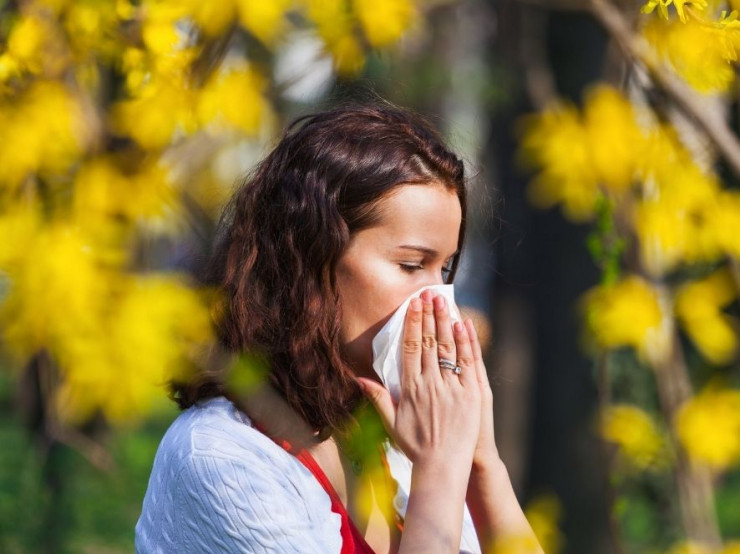Hay fever affects 1 in 4, or around 13 million people in the UK. For most people, the symptoms appear during the spring and summer and can make day to day living both uncomfortable and frustrating.
Recent studies suggest that this number may be on the rise, with more people experiencing hay fever symptoms than ever before due to climate change.
So, what exactly causes hay fever and what can you do to feel better? Let’s take a closer look.
What is hay fever?
Hay fever (also called allergic rhinitis) is an allergic reaction to environmental allergens such as pollen from grass, trees and weeds.
Although it usually occurs in the spring and summer months, it can affect some sufferers all year round.
It can affect both adults and children and tends to happen at the same time every year.
What are the symptoms of hay fever?
The symptoms of hay fever can include the following;
● Runny nose
● Itchy, watery or red eyes
● Sneezing
● Nasal congestion
● Headaches or blocked sinuses
● Cough
● Itchy nose, throat or roof of the mouth
● Postnasal drip (the sensation of mucus running down the back of the throat)
● Tiredness
● Shortness of breath
There is considerable overlap between the symptoms of hay fever and COVID-19 including headaches, blocked nose, cough, loss of smell and feeling unwell.
If you suspect you may have contracted coronavirus, arrange a free PCR test immediately and follow government guidelines whilst you wait for the result.
Having said that, it’s important not to panic. When the pollen count is high, your symptoms are likely to get worse, especially if you also suffer from asthma or other allergies.
What causes hay fever?
Hay fever is caused when your immune system believes that certain substances such as pollens, house dust mites or mould are a threat.
To protect you from harm, it reacts strongly when tissues in your nose, eyes, mouth or throat come with these allergens and produces special antibodies (IgE). This causes those tell-tale symptoms of hay fever.
Most hay fever sufferers are allergic to grass pollen and develop symptoms between May and July. However, some are also sensitive to tree pollen (Feb to June), weed pollen (June to September) or mould spores (Sept to Oct). Some unlucky people suffer from allergies throughout the year. This is called perennial rhinitis.
How to treat hay fever
You can reduce or even eliminate those unpleasant symptoms of hay fever through a combination of avoiding triggers and using effective medication. Here are our top tips:
Avoid triggers
Keep your eye on the pollen forecast. When the pollen count is expected to be high, stay inside as much as you can and keep your windows closed. Check the Met Office forecast here.
Install a pollen filter in your car and keep your windows closed when travelling to prevent the pollen from circulating in your car.
Wear glasses when you’re outside to keep pollen away from your eyes.
Change your clothes and wash your face and hair to remove the pollen when you come inside if the pollen count is high.
Don’t dry clothes outside when the pollen count is high as it can stick to them.
Apply Vaseline or another barrier balm around your nose and eyes to trap pollen before it gets chance to irritate you.
Hay fever medication
There are different types of treatment methods depending in your symptoms and the individual. Some people require multiple products such as antihistamine tablets plus eye drops for targeted relief, then others just require one solution. Its all about understand your symptoms to get the right relief for you.
Antihistamines
These are inexpensive and act quickly (usually 30- 60 mins), reducing your symptoms effectively. Most are suitable for children over 2 and adults and should be taken once per day.
● Piriteze Allergy Relief Tablets
● Benadryl Allergy Relief One a Day Tablets
● Hay Fever Tablets - Cetirizine Hydrochloride Film-Coated Tablets
Nasal sprays
These can effectively treat nasal symptoms if you are feeling congested or struggling with your breathing. They can be used with antihistamine medication.
● Pirinase Hayfever Nasal Spray 0.05% 60 dose
● Otrivine Congestion Relief Nasal Spray Adult 10ml
● Sudafed Congestion Relief 0.1% Nasal Spray
● Becodefence Adult Nasal Spray 20ml
Eye drops
Soothe those itchy eyes by using one of these effective brands of eye drops for hay fever.
● Optrex Hayfever Relief Eye Drops 10ml
● Optrex Soothing Eye Drops - For Itchy Eyes
Tablets or syrup
● Piriteze Antihistamine Kids Allergy Relief Syrup, Cetirizine, Sugar Free, Banana Flavour, 70ml
Discover our full range of hay fever treatments in our online store. We’ll even deliver straight to your door.



